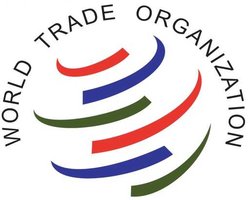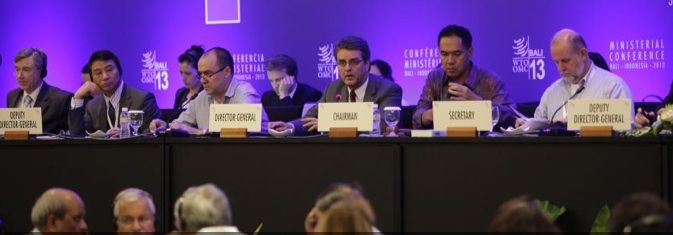A WTO agreement worth $1tn has finally been reached by ministers from 159 nations in Bali, Indonesia. This is the WTO’s (World Trade Organization’s) first agreement to address the current barriers to international trade.
The majority of economists in the USA say the WTO agreement is a scaled-back deal to free up commerce and keep floundering talks alive with a pact that could take years to fully take effect.
The Wall Street Journal says the WTO agreement “fell far short of the goal set by negotiators when they launched talks in Doha, Qatar, in 2001.”
The agreement improves access to products sold by the poorest countries without duty being levied on them. The expected $1 trillion boost to world trade may hopefully allow emerging economies to raise farm subsidies.
The WTO says that the Bali Ministerial Conference includes a package of issues designed to:
- simplify trade
- provide developing countries with more options to achieve food security
- boost the poorest countries’ trade
- aid overall development more.
WTO Director-General Roberto Azevêdo, said:
“For the first time in our history: the WTO has truly delivered. I challenged you all, here in Bali, to show the political will we needed to take us across the finish line. You did that. And I thank you for it.
With the Bali package you have reaffirmed not just your commitment to the WTO — but also to the delivery of the Doha Development Agenda. The decisions we have taken here are an important stepping stone towards the completion of the Doha round.
And it is very welcome that you have instructed us to prepare, within the next 12 months, a clearly defined work program to this end.”
The WTO agreement came after a 5-day meeting in Bali (©WTO/ANTARA)
Trade facilitation
The WTO agreement decision on trade facilitation is a multinational deal to streamline customs procedures by reducing costs and speeding up procedures. The agreement, described by the WTO as one of its greatest reforms since it was established in 1995, will be legally binding.
Other agreements struck since 1995 are on telecommunications and financial services, as well as free trade in information technology goods among a subset of WTO members.
The aims of the trade facilitation decision are to:
- streamline customs procedures
- make trade easier, cheaper and faster
- provide transparency, clarity and efficiency
- reduce corruption and bureaucracy, and
- use technological advances.
The agreement includes provisions for landlocked countries wishing to trade through ports in neighboring countries (goods in transit).
WTO members have agreed to help developing and the least developed nations improve their infrastructure, provide training for customs officials, and other costs associated with the implementation of the agreement.
This deal will boost the world economy by between $400 billion and $1 trillion by:
- creating a stable business environment and attracting foreign investment
- cutting trade costs by 10% to 15%
- encouraging trade flows, and
- increasing revenue collection.
The text drafted in Bali is not the final one, but its substance is, WTO emphasized. It will be checked to make sure the language is legally correct and will be adopted by the General Council by July 31st, 2014.
The Peterson Institute for International Economics2 calculated that if countries improved their trade facilitation halfway to the world’s top performers, there would be $1 trillion more trade, 21 million extra jobs and GDP increases of $960 billion.
World response to the WTO agreement
British Prime Minister, David Cameron said:
“I am delighted that we have secured an impressive global deal worth over £1 billion a year to British businesses. This deal will help boost our exports, meaning that UK companies can grow and employ more people. By slashing barriers to trade, this deal will also provide a lifeline to the world’s poorest people.”
Karl De Gucht, the EU trade commissioner, said “I am relieved because today marks the return of the WTO from the darkness of multilateral irrelevance into the light of multilateral action and success. Today, we have saved the WTO.”
The US Chamber of Commerce issued the following communiqué “The WTO has re-established its credibility as an indispensable forum for trade negotiations. Nor is this a paper victory: Streamlining the passage of goods across borders by cutting red tape and bureaucracy could boost the world economy.”
Nick Dearden, director of the World Development Movement, said: “On the positive side, developing countries have forced concessions on to the pro-corporate agenda of the US and EU. However, those concessions are only the minimum necessary to get through what remains a deal for corporations, not for the world’s poor. The aggressive stance of the US and EU means that we have moved only a little, and shows again that the WTO can never be a forum for creating a just and equal global economic system.”
Video – What is International Trade
International trade refers to trade between countries, i.e., countries buying and selling things to each other.


